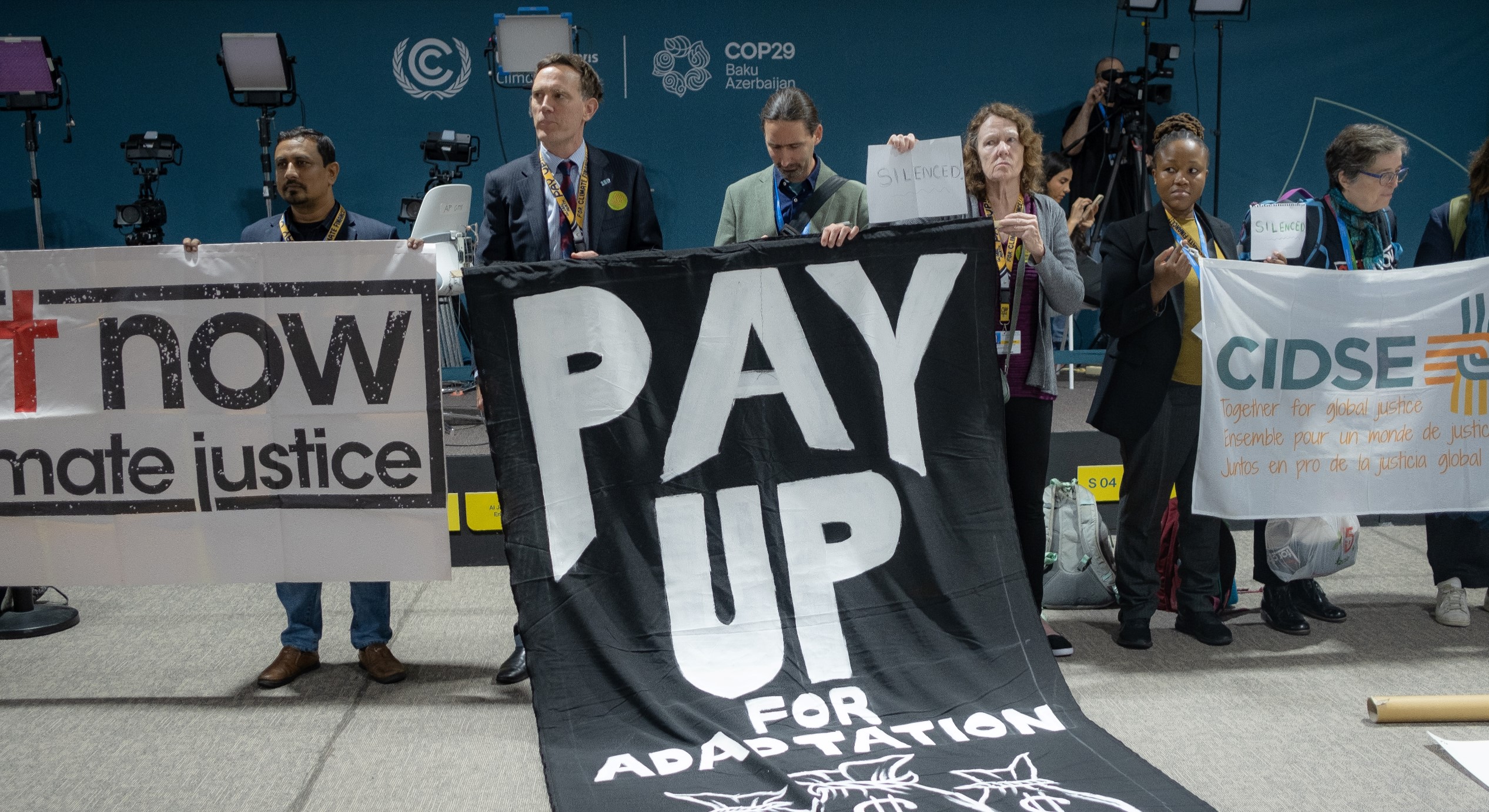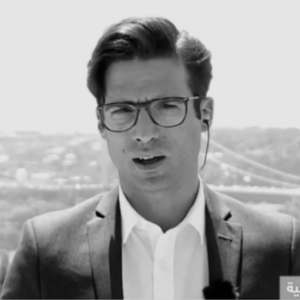
"God's Gift" Turns into an Unacceptable "Insult" and a Historic Opportunity for Legal Accountability - Musab Subuh

"God's Gift" Turns into an Unacceptable "Insult" and a Historic Opportunity for Legal Accountability - Musab Subuh
The squabbles of the COP29 negotiations ended with an agreement described by the Philippines' international envoy for climate issues as an "insult." Her country has suffered from increased extreme climate disasters in the past decade. The summit, which began as a "gift from God," according to the Azerbaijani president, ended with the fateful irony of the obstinacy of the countries of the High North and the energy and fossil fuel company lobbies. The richest people in the world make up 1% of its population but cause about 95% of all greenhouse gas emissions, as reported by Oxfam International, referring to historical climate injustice.
Safa Al Jayoussi, a climate justice advisor at Oxfam, strongly criticized the announced agreement and its outcomes. She expressed dismay at the lack of comprehensiveness in ignoring the objections of Global South Countries to the final text. She considered the amount allocated to support the countries most affected by climate change "trivial."
Under the agreement, the countries of the High North, which are advanced, wealthy, and historically responsible for climate change since the Industrial Revolution in the late 18th century, agreed to pay $300 billion a year to developing and least developed countries until 2035 to help combat climate change. They had promised to pay $100 billion annually in 2020, but only about $75 billion of the $400 billion has been delivered over the past four years. Developing countries have demanded more than four times the amount approved for this year, at least $1.3 trillion, to combat the greatest existential threat to humanity.
Commenting on the agreement, Nacpi said it was beyond mockery and called it unacceptable. She added that she preferred negotiating for another year than accepting such a lousy agreement. Chandni Raina, a climate affairs representative from India, left the closing session protesting what she called "an illusion that cannot address the tremendous climate challenges we face in the most affected countries." Moreover, Juan Carlos Monterrey Gomez, Special Representative for Climate Change of Panama's Ministry of Environment, said the final stages of negotiations led to the "shameful numbers" compared to what is required. His country is on the frontlines of climate change risks and being swallowed by rising water levels in the Pacific and Atlantic oceans.
Developed countries, which he said "were late and procrastinating in responding to their climate commitments," had forced the poor countries to accept the agreement. They put a text for them to sign and used the diplomatic multilateralism of the agreement as a pretext. "We had no choice but to accept," he continued, "and let there be an agreement so the whole process would not end." No wonder the rich only want greater wealth, even at the expense of the poor after the colonial depletion of their resources or at the expense of life on the planet and future generations. Then, sarcastically, they will thank God for His gifts.
The ICJ Considers States' Legal Obligations Regarding Climate Change
Responding to the greatest existential threat to humanity and the planet, the International Court of Justice (ICJ) is holding hearings for the first time in its nearly eight-decade history in a case seeking an advisory opinion on states’ obligations regarding climate change. This year has seen record-breaking global temperatures and even more alarming sea-level rises in island nations.
Vanuatu, a Pacific island nation being swallowed by the sea, is leading the legal debate. The ICJ, the head of global justice, will examine climate justice for the first time in its history. Given the growing risks and challenges, it will comment on the most controversial and perhaps most unjust outcome of the Baku Summit for the Earth’s environment, climate, and people.
"The systematic and prolonged failure of the COP process has cost the health, culture, and lives of many people, including the people of Vanuatu," said Vanuatu’s International Envoy on Climate Issues, Ralph Regenvanu, the country that brought the case to court, at the start of the judicial hearings. He stressed the need not to rely on "political convenience" when addressing "the urgent need for a collective response to the risks of climate change." He called for international law as a fundamental basis for preserving the rights of the most affected communities to protect their lands, peoples, cultural and material assets, and the rights of their ancestors and future generations from the dangers of the global threat.
The Pacific Island Students Fighting Climate Change led the campaign to the Palais de Justice in The Hague five years ago. Together with 26 young international lawyers and law students, Cynthia Houniuhi, the organization’s president, rallied the support of some 1,500 international organizations and asked four governments—Vanuatu, Tonga, the Solomon Islands, and Fiji—to go to the UN General Assembly to request an advisory opinion from the ICJ.
"I stand before you today not as an individual but as a living embodiment of the voices of our people, past, present, and future," Cynthia told the court in a compelling leadership statement. A descendant of royals who once ruled the Solomon Islands, she felt a responsibility to defend the collective memory of her ancestors."Within my blood flows the collective memory of my ancestors, Hutaa, who were conceived from the divine law, Waratau, and have thrived on our islands since time immemorial,” Cynthia said. The law requires litigants to refer to the chief of their tribe in their culture and prohibits abuse of the land and its resources. Cynthia had previously told me that she saw going to the head of international justice to condemn the climate injustices that her community, on the front lines of climate change, is a practical manifestation of this divine law.
Before the court, Cynthia was critical of the Baku Summit's outcomes. "Those who stand to lose are the future generations. Their future is uncertain, reliant upon the decision-making of a handful of large emitting states, which, as my colleagues explained, are responsible for climate change, she stated. "These states have not only enabled but proactively encouraged the production and consumption of fossil fuels and continue to do so today," she continued in a tone full of surprise, sadness, and disappointment.
It remains to be seen if the ICJ, whose sessions continue, will succeed in obligating states to abide by their legal commitments towards the climate, already legislated in UN climate laws in previous agreements and resolutions. Or will the “gift of God” in oil and its consumption and the profound "insult" to divine law continue to destroy the planet and the future of its generations?
Recent publications

